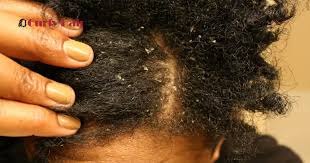Welcome to the Bea’s Bayou Skincare blog! Today, we're diving into an exciting topic that could transform your approach to managing eczema: the benefits of digestive enzymes for scalp and skin health. If you're struggling with eczema and seeking natural, effective solutions, this post is for you.
Understanding the Gut-Skin Connection
Why is it important?
As someone who has personally struggled with scalp eczema, also known as seborrheic dermatitis, I know firsthand the frustration and discomfort that can come with this skin condition. For years, I tried countless creams, sprays, and shampoos, only to find temporary relief. It wasn't until I started focusing on my gut health and incorporating digestive enzymes into my routine that I finally found a more long-term solution.
The connection between gut health and skin health is well-established. Our gut microbiome, the diverse community of microorganisms that reside in our digestive system, plays a crucial role in regulating inflammation, nutrient absorption, and immune function - all of which can have a direct impact on the health and appearance of our skin.
When our gut is out of balance, with an overgrowth of harmful bacteria or a lack of beneficial microbes, it can lead to increased inflammation, poor nutrient absorption, and a weakened immune response. This, in turn, can manifest as skin issues like eczema, acne, and even premature aging.
What Are Digestive Enzymes?
Digestive enzymes are natural substances produced by our bodies to help break down food into nutrients that can be absorbed. They play a crucial role in digestion and overall health. The main types of digestive enzymes include:
- Amylase: Breaks down carbohydrates.
- Protease: Breaks down proteins.
- Lipase: Breaks down fats.
In addition to these, there are specific enzymes like lactase, which helps digest lactose, and cellulase, which breaks down cellulose from plant fibers.
I'd be happy to share the specific digestive enzyme supplement that I use, so be sure to DM us "ENZYMES" on our Instagram page (@beasbayouskincare_) for the link! https://instagram.com/beasbayouskincare_
How Digestive Enzymes Can Benefit Eczema and Seborrheic Dermatitis
As someone who has struggled with scalp eczema, or seborrheic dermatitis, I've found that incorporating digestive enzymes into my routine has been a game-changer. Here's how they can help:
Reduced Inflammation
Inflammation is a common trigger for eczema flare-ups, and maintaining a healthy gut can help keep this condition under control. By improving digestion and nutrient absorption, digestive enzymes can help reduce overall inflammation in the body, which can in turn alleviate the symptoms of eczema and seborrheic dermatitis.
Balanced Gut Microbiome
The health of our gut microbiome is closely linked to the health of our skin. An imbalance in the gut, with an overgrowth of harmful bacteria or a lack of beneficial microbes, can contribute to skin issues like eczema. Digestive enzymes can help support a healthy, balanced gut microbiome, which can have a positive impact on skin health.
Improved Nutrient Absorption
Eczema and other skin conditions can be exacerbated by nutrient deficiencies. By helping to break down and absorb the nutrients from the foods we eat, digestive enzymes can ensure that our bodies are getting the essential vitamins, minerals, and antioxidants needed to support healthy skin.
Best Enzymes for Scalp and Skin Health
Certain enzymes are particularly beneficial for those with eczema:
- Bromelain: Found in pineapples, helps reduce inflammation.
- Papain: From papayas, aids protein digestion and has anti-inflammatory properties.
- Pancreatin: A combination of several digestive enzymes that support overall digestion.
f you're interested in trying digestive enzymes to support your skin health, here are some tips to get you started:
Choose the Right Enzymes
When selecting a digestive enzyme supplement, look for one that contains a broad spectrum of enzymes, including amylase, protease, and lipase. This will ensure that you're supporting the breakdown of a wide range of nutrients. You may also want to consider enzymes that are specifically formulated for skin and scalp health, such as those that contain enzymes derived from papaya or pineapple.
In the video, I mentioned that I'd be happy to share the specific digestive enzyme supplement that I use, so be sure to DM us "ENZYMES" on our Instagram page for the link!
Time Your Enzyme Intake
For the best results, it's generally recommended to take digestive enzymes with meals, as this is when they'll be most effective in breaking down the food you're consuming. Some people also find it helpful to take enzymes between meals to support overall digestive function.
Pair with Other Gut-Supportive Habits
While digestive enzymes can be incredibly helpful, they work best when combined with other gut-supportive habits, such as:
- Consuming probiotic-rich foods: Yogurt, kefir, sauerkraut, and other fermented foods can help replenish the beneficial bacteria in your gut.
- Staying hydrated: Proper hydration is essential for healthy digestion and nutrient absorption.
- Reducing inflammatory foods: Limiting your intake of processed foods, sugar, and gluten can help reduce overall inflammation in the body.
- Managing stress: Chronic stress can disrupt the gut-brain axis and contribute to digestive issues. Finding healthy ways to manage stress can be beneficial.
Exploring Enzyme-Rich Foods
In addition to supplementing with digestive enzymes, you can also incorporate enzyme-rich foods into your diet to support your gut and skin health. Some great options include:
- Papaya: Papaya contains the enzyme papain, which can help break down proteins and reduce inflammation.
- Pineapple: Pineapple is a rich source of the enzyme bromelain, which has anti-inflammatory properties and can aid in digestion.
- Fermented foods: Fermented foods like yogurt, kefir, sauerkraut, and kimchi contain natural enzymes that can support gut health.
- Avocado: Avocados are a great source of healthy fats and contain the enzyme lipase, which helps break down fats.
Incorporating these enzyme-rich foods into your diet, along with your digestive enzyme supplement, can provide a comprehensive approach to supporting your gut and skin health.

The Gut-Skin Connection: A Holistic Approach
As I mentioned earlier, the connection between gut health and skin health is well-established. By addressing the root causes of skin issues like eczema and seborrheic dermatitis, we can find more lasting solutions that go beyond just treating the symptoms.
In addition to incorporating digestive enzymes, it's important to take a holistic approach to supporting your gut and skin health. This may include:
- Identifying and addressing food sensitivities: Foods like dairy, gluten, and sugar can be common triggers for skin issues. Keeping a food journal and working with a healthcare professional to identify and eliminate problem foods can be helpful.
- Reducing stress: Chronic stress can disrupt the gut-brain axis and contribute to inflammation. Finding healthy ways to manage stress, such as through meditation, yoga, or counseling, can be beneficial.
- Improving sleep quality: Adequate, high-quality sleep is essential for gut and skin health. Aim for 7-9 hours of sleep per night and establish a consistent sleep routine.
- Increasing physical activity: Regular exercise can help improve digestion, reduce inflammation, and support overall skin health.
By taking a comprehensive, holistic approach to your health, you can unlock the benefits of digestive enzymes and other gut-supportive strategies to achieve clearer, healthier skin.
Bea’s Bayou Skincare Solutions
At Bea’s Bayou Skincare, we believe in holistic approaches to skin health. While digestive enzymes can work wonders internally, our probiotic-infused and herbal haircare products can provide external relief for eczema. Explore our range to find the perfect solution for your skin and scalp needs.
Join the Conversation!
If you're struggling with eczema, seborrheic dermatitis, or other skin issues, I encourage you to explore the power of digestive enzymes. By supporting your gut health and improving nutrient absorption, digestive enzymes can help reduce inflammation, balance your gut microbiome, and promote healthier, more radiant skin.
Remember, everyone's body is unique, so it may take some experimentation to find the right digestive enzyme supplement and supporting habits that work best for you. But with patience and persistence, you can unlock the benefits of digestive enzymes and take control of your skin health.
I hope this blog post has been helpful in providing you with a deeper understanding of the gut-skin connection and the role of digestive enzymes. If you have any questions or would like to share your own experiences, I'd love to hear from you in the comments below. Here's to a healthier, happier you!
Wishing you all the best,
Arielle
Join the Conversation
Have you tried digestive enzymes for your eczema? Share your experiences and questions in the comments below! Your insights could help others on their journey to healthier skin.
Stay Connected
For more tips and information on managing eczema naturally, get a FREE Guide when you subscribe to our newsletter and follow us on social media.





